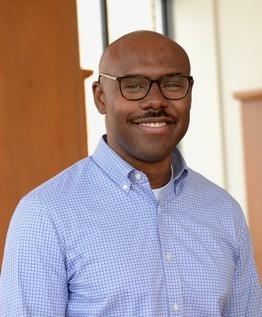New to CPRC - Dustin Duncan
This is a series to introduce CPRC members to a broader community.
Discipline/Training Background: Social Epidemiology, Spatial Epidemiology
Department: Epidemiology, Columbia Mailman School of Public Health
Started at Columbia: Fall 2019
What research are you working on currently?
My research broadly seeks to understand how social and contextual factors especially neighborhood characteristics influence population health, with a particular focus on HIV epidemiology and prevention, sleep epidemiology and promotion, and growing research on COVID-19. My work has an emphasis on minority health, intersectionality and health disparities, especially among sexual and gender minority populations in particular among Black gay, bisexual and other sexual minority men (SMM) and transgender women of color (TWOC). I also study socio-demographic disparities in neighborhood environmental features related to population health and community wellbeing. Regarding COVID-19, my current interests include characterizing the COVID-19 epidemic in the United States and globally—especially among marginalized populations
What motivated you to research in your specialized subject matter?
My interests in the role of neighborhoods on health disparities began in graduate school, especially in my doctoral program including in my dissertation research at the Harvard T.H. Chan School of Public Health. My dissertation had a strong focus on racial/ethnic disparities in child/adolescent obesity because although racial/ethnic disparities in obesity have been documented for well over a half-century, the determinants of this variation remain evasive. At that time, little work focused on the role of neighborhoods in health disparities.
What are the policies or areas of policies to which your work is relevant?
Neighborhoods are policy-relevant. To illustrate, results from my research suggest that policy interventions to change the built environment are highly promising approaches for addressing disparities in health outcomes by socioeconomic status. Additionally, my work suggests that researchers and policymakers can create strategies to reduce stigmatizing neighborhoods and can potentially develop stigma management interventions for people living in stigmatizing neighborhoods. Finally, my work suggests that policy interventions are needed to ensure an equitable distribution of neighborhood amenities, including access to parks.
Main collaborators at Columbia? Elsewhere?
I collaborate widely on my grants and papers, including with academic researchers across Columbia and at other domestic and international institutions. Some key collaborators include:
- Charles Branas, Wafaa El-Sadr, and Stephen Morse, Columbia University
- John Schneider, University of Chicago
- Ichiro Kawachi, Harvard University
- Asa Raddix, Callen-Lorde Community Health Center
- Steven Safren, University of Miami
- Veronica Magee, Brotherhood, Inc.
Don't be shy; what accomplishment are you most proud of and why?
Through the Spatial Epidemiology Lab that I direct at Columbia, I have had the opportunity to serve as a mentor to numerous students, trainees, and junior faculty. Mentoring has been as the center of my career. Thus, the accomplishment that I am most proud of is receiving the Mentor of the Year (2020) Award from Columbia University Irving Medical Center.
If people want to learn more about your research, where should they start?
Read my books! My research and that of the field of spatial epidemiology is summarized in my co-edited book Neighborhoods and Health (2nd edition) with Ichiro Kawachi (Oxford University Press, 2018). My other book The Social Epidemiology of Sleep focuses on health/wellbeing of Black sexual minority men.
Fun fact about you:
I used to be an aspiring DJ.

